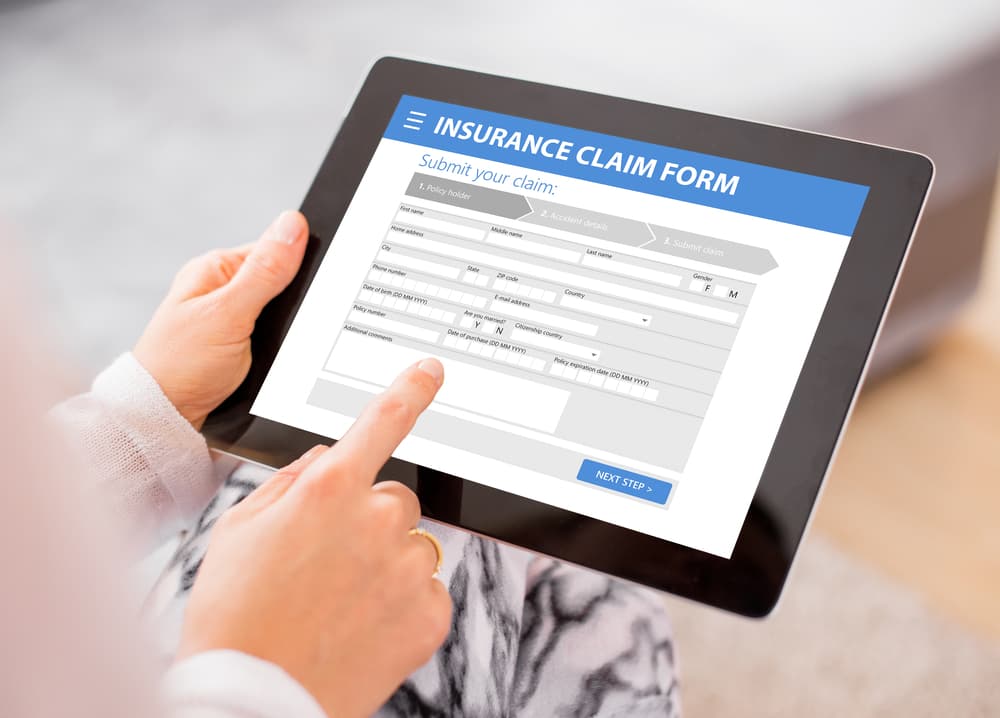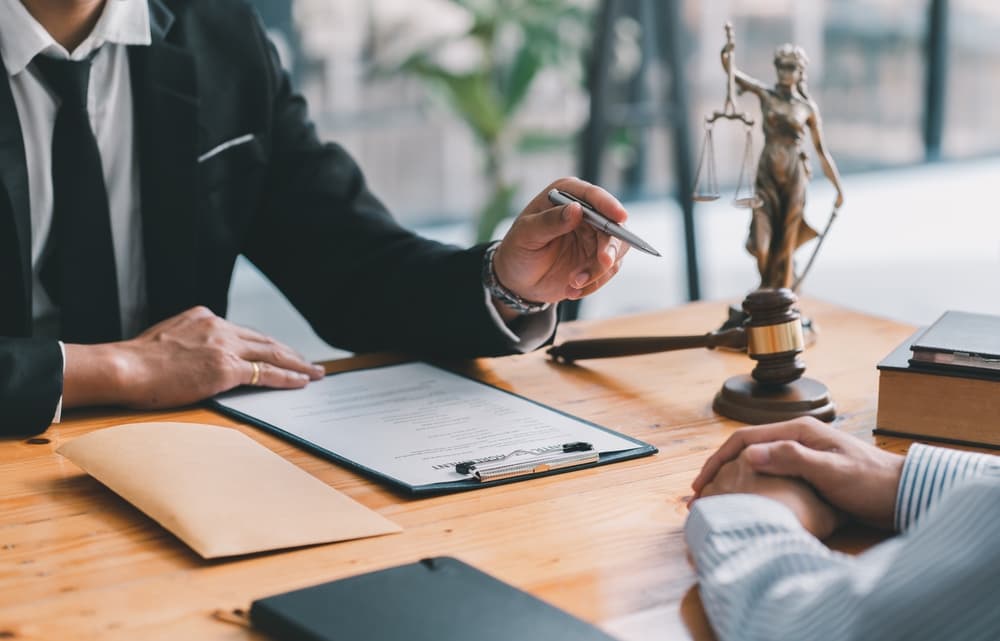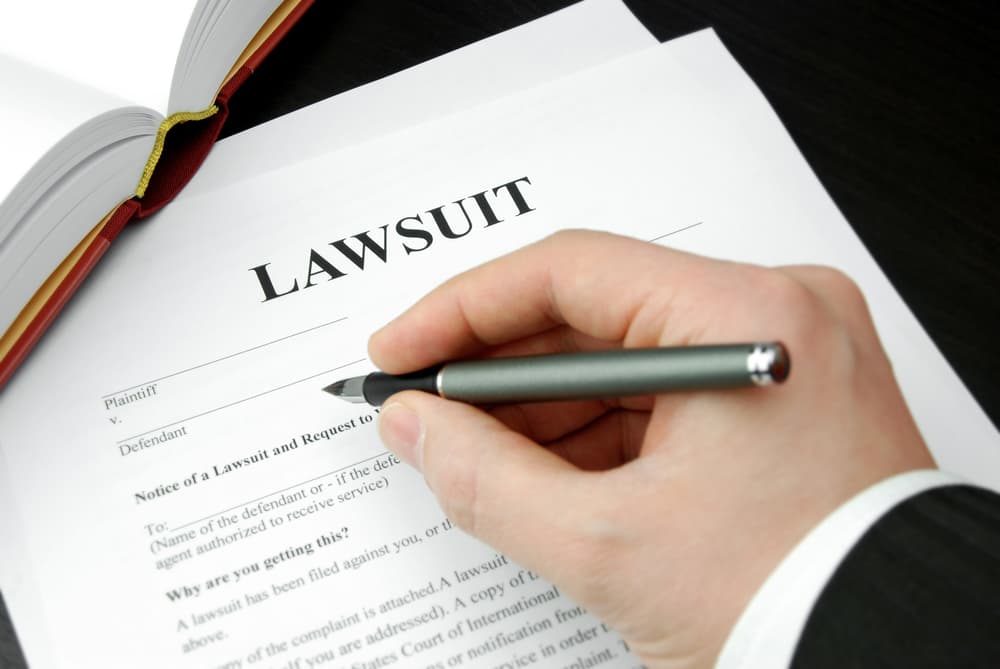Reports | July 27, 2024 | Car Accidents

Our firm’s mission is to stand up against powerful insurance companies like Allstate, which often attempt to minimize payouts to injury victims. By leveraging our extensive knowledge and resources, we at Bagen Law Accident Injury Lawyers, P.A.. work tirelessly to navigate the complex legal landscape and secure favorable outcomes for our clients.
If you’ve suffered a car accident injury, contact the auto accident lawyers from Bagen Law Accident Injury Lawyers, P.A.. today at (800) 800-2575 for a free consultation to discuss your case and potential compensation.
Initial Steps Our Lawyers Can Take

When you contact Bagen Law Accident Injury Lawyers, P.A.. after an accident, our lawyers take immediate and strategic steps to build a strong foundation for your case.
Free Initial Consultation
- Case Evaluation: During the free consultation, our attorneys review the details of your accident, including the circumstances, injuries sustained, and any available evidence.
- Legal Strategy: We discuss potential legal strategies tailored to your unique situation and provide an overview of what to expect throughout the claims process.
Discussion of Next Steps
- Evidence Collection: We outline the evidence needed to support your claim and begin gathering it promptly.
- Claim Submission: Our attorneys prepare and submit your injury claim to Allstate, ensuring all necessary documentation is included.
- Client Communication: We keep you informed about the progress of your case and are always available to answer any questions you may have.
Investigating the Accident
A thorough investigation will start building a strong case for your Allstate injury claim. Bagen Law Accident Injury Lawyers, P.A.. takes meticulous care to gather and analyze all relevant evidence, accounting for every detail to support your claim.
Examination of the Accident Scene
- Site Inspection: Our team visits the accident scene to gather firsthand information and take photographs.
- Environmental Factors: We assess weather, road conditions, and visibility at the time of the accident.
- Traffic Signals and Signs: We document any traffic signals, signs, or road markings that could influence the case.
Collection of Police Reports and Eyewitness Statements
- Police Reports: Obtaining official police reports to understand the initial findings and statements recorded at the scene.
- Witness Interviews: Identifying and interviewing eyewitnesses to gather their accounts and perspectives on the accident.
- Expert Testimony: Engaging accident reconstruction experts, if necessary, to provide a professional analysis of the collision dynamics.
Engagement of Accident Reconstruction Experts
- Accident Reconstruction: Using expert analysis to recreate the accident scene, helping to establish the sequence of events and pinpoint liability.
- Analysis of Vehicle Damage: Examining vehicle damage patterns to correlate with injuries sustained and the mechanics of the collision.
- Digital Reconstruction: Utilizing technology for digital reconstructions, providing visual aids that can be critical during negotiations or court presentations.
Gathering Evidence and Documentation
Gathering solid evidence and comprehensive documentation is essential in substantiating your Allstate injury claim. Bagen Law Accident Injury Lawyers, P.A.. will collect and organize every piece of relevant information to build a compelling case.
Compilation of Medical Records and Bills
- Medical Documentation: Collecting detailed medical records from all healthcare providers who treated you after the accident.
- Bills and Receipts: Gathering all medical bills and receipts related to your treatment, including hospital stays, doctor visits, medications, and rehabilitation costs.
- Future Medical Needs: Estimating future medical expenses based on your ongoing treatment and potential long-term care needs.
Documentation of Lost Wages and Other Financial Impacts
- Employment Records: Securing employment records to verify lost wages, including pay stubs and employer statements.
- Work Absence Verification: Documenting the time missed from work due to your injuries and any impact on your ability to perform job duties.
- Future Earnings Impact: Assessing how your injuries may affect your future earning capacity and career prospects.
- Vehicle Damage Reports: Collecting repair estimates, photographs, and reports detailing the damage to your vehicle.
- Personal Property Damage: Documenting any other personal property that was damaged in the accident, such as electronic devices or personal belongings.
Communicating with Allstate
Effective communication with Allstate is critical in managing and advancing your injury claim. Bagen Law Accident Injury Lawyers, P.A.. ensures that all interactions with Allstate are professional, thorough, and strategically planned to strengthen your case.
Submission of the Initial Claim
- Claim Filing: Submitting a detailed and well-documented initial claim to Allstate, including all necessary forms and initial evidence.
- Claim Number: Ensuring you receive a claim number for tracking and reference throughout the process.
- Confirmation: Obtaining written confirmation of claim receipt from Allstate.
Providing Evidence of Liability and Damages
- Liability Evidence: Presenting all collected evidence that clearly demonstrates the other party’s fault, such as police reports, witness statements, and accident reconstruction findings.
- Medical Evidence: Submitting comprehensive medical documentation to substantiate the extent and impact of your injuries.
- Financial Documentation: Including all financial records related to medical bills, lost wages, and other accident-related expenses.
Regular Updates and Responses to Allstate’s Inquiries
- Status Updates: Keeping Allstate informed with regular updates about your medical treatment and recovery progress.
- Responding to Requests: Promptly addressing any additional information requests or questions posed by Allstate.
- Maintaining Records: Documenting all communications with Allstate for reference and future use if necessary.
Preparing and Submitting a Demand Letter
A demand letter is a formal document sent to the insurance company outlining the facts of the case, detailing the injuries and damages, and requesting a specific amount of compensation. Your lawyer submits it after gathering all necessary evidence and documentation.
Key Components of the Demand Letter
- Introduction: Brief introduction of the accident, including date, location, and involved parties.
- Liability Statement: Detailed explanation of why Allstate’s insured is liable for the accident.
- Injury Description: Comprehensive description of your injuries, treatments received, and prognosis.
- Economic Damages: Itemized list of all economic damages, such as medical expenses, lost wages, and property damage.
- Non-Economic Damages: Description of non-economic damages, including pain and suffering, emotional distress, and loss of enjoyment of life.
- Settlement Demand: Specific monetary amount demanded for settlement, supported by the total calculated damages.
Expected Outcomes and Responses from Allstate
- Initial Response: Allstate may respond with an initial offer, which is typically lower than the demanded amount.
- Negotiation: Multiple rounds of negotiations may occur, with both parties presenting their cases.
- Counteroffers: Expect counteroffers and be prepared to justify the demanded amount with robust evidence.
- Final Settlement: The goal is to reach a fair settlement that adequately compensates you for all damages.
Valuing Your Claim
Accurately valuing your claim ensures you receive fair compensation for your injuries and losses. Bagen Law Accident Injury Lawyers, P.A.. employs a thorough approach to determine the full extent of your damages.
Assessment of Economic Damages
- Medical Expenses:
- Past Medical Bills: Calculating all medical expenses incurred from the date of the accident, including emergency room visits, hospital stays, surgeries, medications, and rehabilitation.
- Future Medical Costs: Estimating future medical expenses based on your ongoing treatment and expected recovery needs, with input from medical professionals.
- Lost Wages:
- Income Documentation: Collecting pay stubs, employment records, and tax returns to document lost wages due to your injuries.
- Loss of Earning Capacity: Assessing how your injuries affect your ability to work in the future and calculating the impact on your earning potential.
- Property Damage:
- Vehicle Repairs or Replacement: Including estimates or receipts for repairing or replacing your damaged vehicle.
- Other Property: Documenting damage to personal property involved in the accident.
Evaluation of Non-Economic Damages
- Pain and Suffering:
- Physical Pain: Accounting for the physical pain and discomfort you have endured due to your injuries.
- Emotional Distress: Considering the psychological impact, including anxiety, depression, and trauma, resulting from the accident.
- Loss of Enjoyment of Life:
- Lifestyle Changes: Evaluating how your injuries have affected your ability to participate in and enjoy everyday activities and hobbies.
- Loss of Consortium:
- Impact on Relationships: Assessing the negative impact your injuries have had on your relationships with family and loved ones.
Consideration of Long-Term Impacts
- Permanent Disability:
- Disability Evaluation: Determining the extent of any permanent disabilities and their impact on your daily life and ability to work.
- Chronic Pain and Suffering:
- Long-Term Effects: Considering the long-term physical and emotional effects of chronic pain and suffering.
Negotiating a Fair Settlement
Negotiating with Allstate to reach a fair settlement can be challenging, but it is a critical step in the claims process. We employ effective strategies to advocate for our clients and secure the compensation they deserve.
Strategies for Effective Negotiation
- Understanding Allstate’s Tactics:
- Initial Low Offers: Recognizing that initial offers are often lower than what the claim is worth.
- Delay Tactics: Identifying delay tactics Allstate uses to pressure claimants into accepting lower settlements.
- Firm Negotiation Stance:
- Rejecting Unfair Offers: Firmly rejecting offers that do not adequately cover the damages and providing clear reasons for the rejection.
- Proposing Counteroffers: Responding with well-justified counteroffers that reflect the claim’s true value.
- Using Legal Leverage:
- Threat of Litigation: Leveraging the possibility of taking the case to court to encourage Allstate to settle fairly.
- Legal Precedents: Citing previous case outcomes to support the claim’s value.
Steps We Will Take if Your Claim is Denied
- Request a Detailed Explanation:
- Denial Letter: Obtain a written explanation for the denial, including specific reasons and any evidence Allstate used to justify their decision.
- Review the Details: Carefully review the denial letter to understand the basis of the decision and identify any errors or misunderstandings.
- Gather Additional Evidence:
- Medical Opinions: Seek additional medical opinions or evaluations to counter Allstate’s claims about the severity of your injuries.
- Accident Reconstruction: Use accident reconstruction experts to provide a detailed analysis supporting your version of events.
- File an Appeal:
- Formal Appeal: Submit a formal appeal to Allstate, addressing the reasons for denial and providing additional supporting evidence.
Legal Options and Appeals Process
- Internal Appeals:
- Reconsideration: Requesting that Allstate reconsiders their decision based on new evidence or clarifications.
- Negotiation: Engaging in further negotiations to resolve any disputes and reach a fair settlement.
- External Appeals:
- Regulatory Complaints: Filing a complaint with state insurance regulators if Allstate’s denial violates insurance laws or regulations.
- Arbitration or Mediation: Considering alternative dispute resolution methods such as arbitration or mediation to settle the claim.
- Litigation:
- Filing a Lawsuit: If all other options fail, taking legal action by filing a lawsuit against Allstate.
- Court Proceedings: Representing you in court, presenting all evidence and arguments to seek a favorable judgment.
Taking Legal Action if Necessary

If negotiations with Allstate do not yield a satisfactory settlement or if your claim is unjustly denied, we are prepared to escalate the matter by taking legal action.
Filing a Lawsuit Against Allstate
- Initiating the Lawsuit:
- Complaint Filing: Drafting and filing a formal complaint in the appropriate court, outlining the facts of the case and the basis for the claim against Allstate.
- Service of Process: Ensuring Allstate receives the complaint and is officially notified of the lawsuit.
Pre-Trial Process and Discovery
- Discovery Phase:
- Depositions: Conducting depositions of all relevant parties, including witnesses, medical experts, and Allstate representatives.
- Interrogatories: Sending and responding to written questions (interrogatories) to gather additional information.
- Document Requests: Requesting documents from Allstate and other parties to uncover all relevant evidence.
- Expert Testimony:
- Medical Experts: Engaging medical experts to testify to the severity and impact of your injuries.
- Accident Reconstructionists: Using accident reconstruction experts to present a clear and compelling collision analysis.
Representation in Court
- Trial Preparation:
- Trial Strategy: Developing a comprehensive trial strategy, including identifying key arguments and evidence.
- Jury Selection: Participating in jury selection to ensure a fair and impartial jury.
- Opening Statements: Presenting a clear and persuasive opening statement to outline your case to the jury.
- Presenting Your Case:
- Examination of Witnesses: Conducting direct and cross-examinations of witnesses to support your claims and challenge Allstate’s defense.
- Evidence Presentation: Presenting all collected evidence, including documents, photographs, and expert testimonies.
- Closing Arguments: Delivering a compelling closing argument summarizing the case and advocating for a favorable verdict.
- Post-Trial Motions and Appeals:
- Post-Trial Motions: Filing any necessary motions after the trial, such as motions for a new trial or to amend the judgment.
- Appeals: If necessary, appealing an unfavorable verdict to a higher court to seek a reversal or modification of the decision.
Potential Outcomes
- Settlement Before Trial:
- Ongoing Negotiations: Continuing to negotiate with Allstate throughout the pre-trial and trial process, as many cases settle before reaching a verdict.
- Trial Verdict:
- Favorable Judgment: Obtaining a favorable judgment from the jury or judge, resulting in compensation for your damages.
- Appeals Process: Engaging in the appeals process if the initial verdict is not favorable or if further legal action is required.
Get Justice
Navigating an Allstate injury claim can be complex and overwhelming, but with the experienced team of personal injury lawyers at Bagen Law Accident Injury Lawyers, P.A.., you can feel confident that your case is in capable hands. Contact us at (800) 800-2575 for a free consultation to discuss your case and potential compensation.
